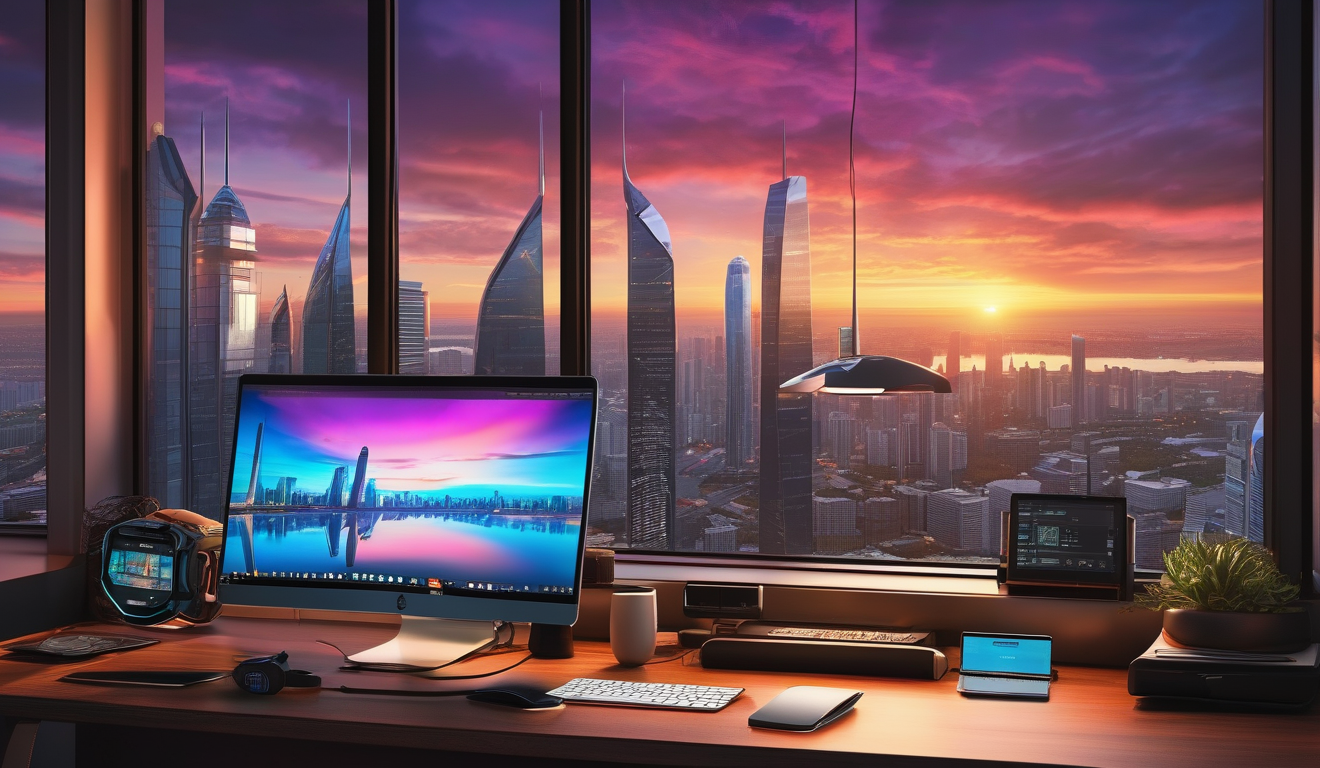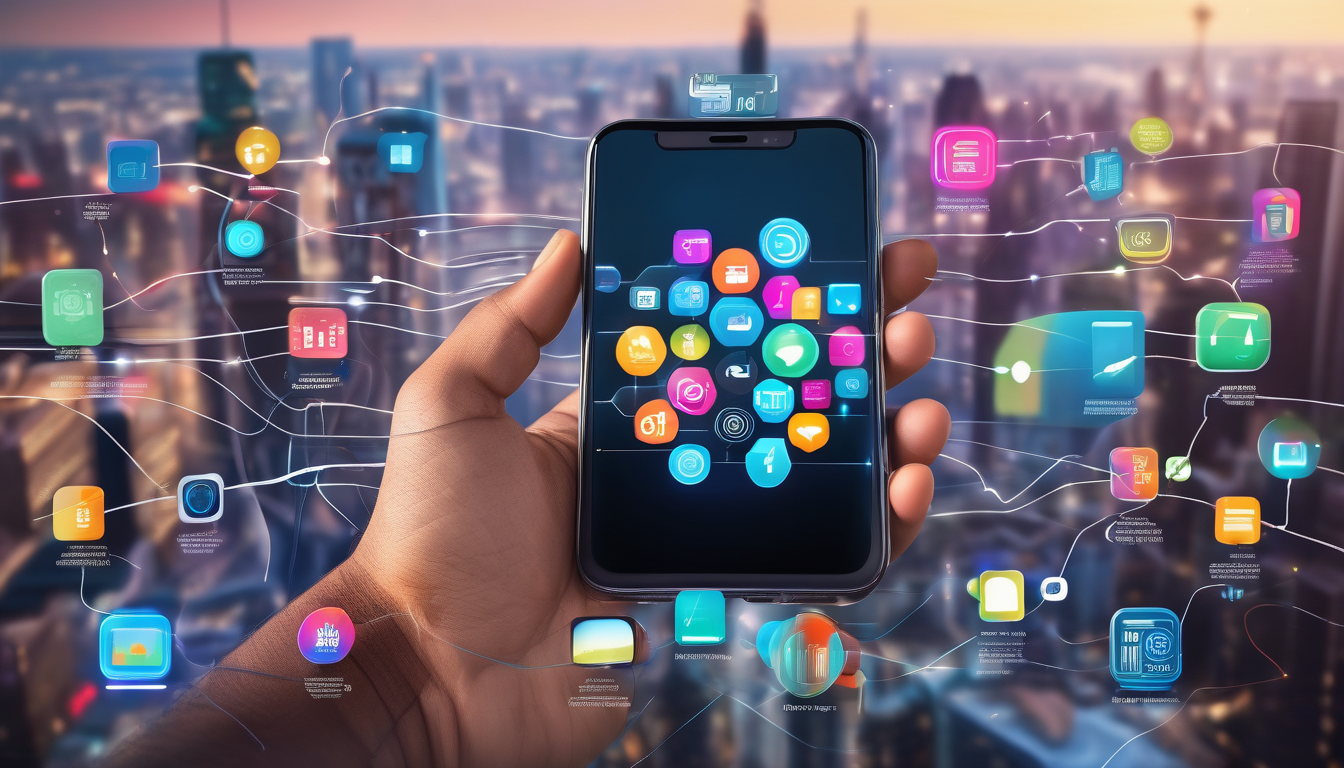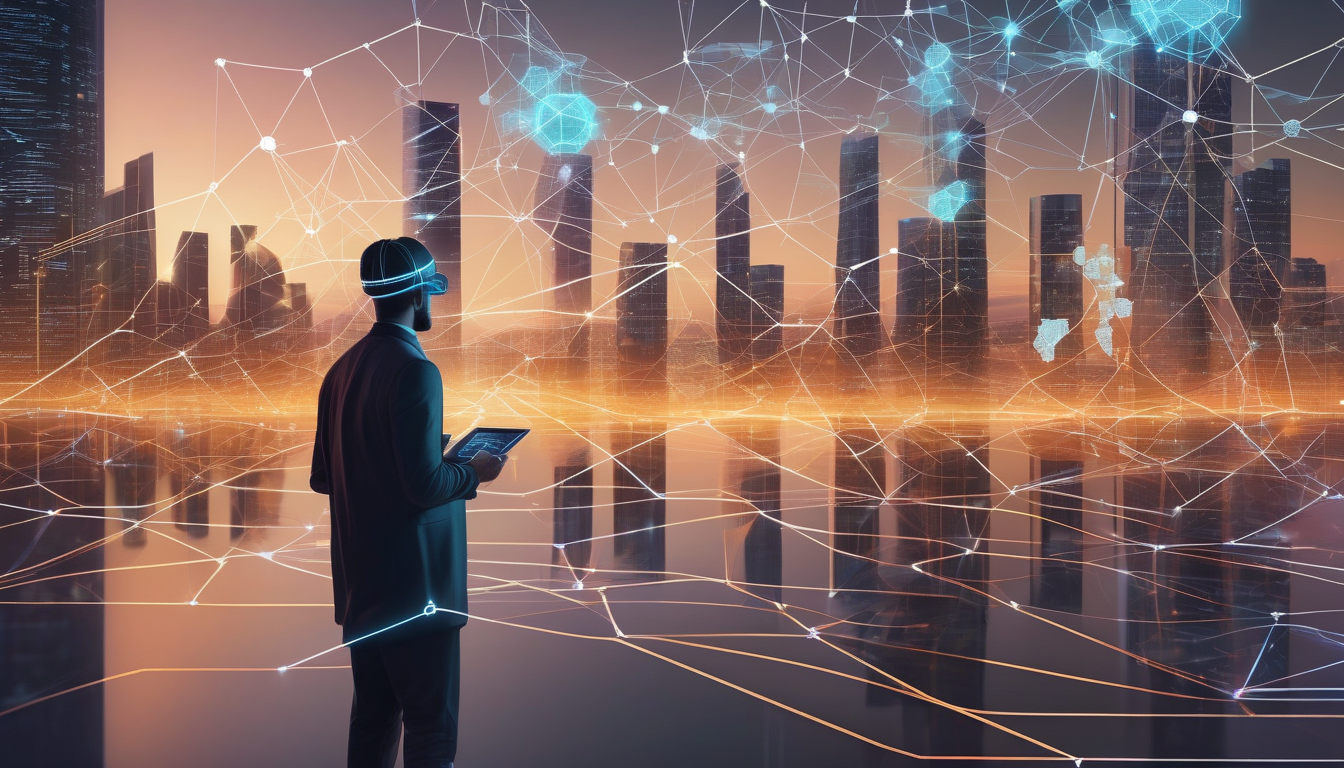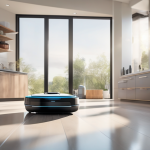The Best Tech Innovations of the Past Decade

The last ten years have been nothing short of a technological renaissance. From the rise of artificial intelligence to the ubiquity of smartphones, we’ve witnessed innovations that have fundamentally altered our lives. These advancements have not only reshaped industries but also redefined how we interact with the world around us. Imagine living in a time where your home can think for itself, or where you can connect with anyone across the globe in an instant. This article dives into the most significant tech innovations of the past decade, showcasing their impact on society and our daily routines.
As we explore these innovations, it’s essential to recognize that each breakthrough has come with its own set of challenges and opportunities. For instance, while artificial intelligence has improved efficiency in various sectors, it also raises ethical questions about privacy and job displacement. Similarly, advancements in mobile technology, particularly with the rollout of 5G, have transformed communication, yet they also demand a reevaluation of our data security measures.
Moreover, the integration of technologies like blockchain has revolutionized how we perceive transactions and data management. This isn’t just about cryptocurrencies; it’s about creating a more secure and transparent world. The implications of these innovations are profound, affecting everything from healthcare to supply chain logistics.
To illustrate the breadth of these changes, consider the following table that summarizes some of the key innovations:
| Innovation | Impact | Future Potential |
|---|---|---|
| Artificial Intelligence | Enhanced efficiency across sectors | Further automation and decision-making capabilities |
| 5G Technology | Revolutionized mobile connectivity | Support for IoT and remote work |
| Blockchain | Secure transactions | Transparency in various industries |
In conclusion, the tech innovations of the past decade have not only improved our lives but also challenged us to think critically about the future. As we continue to embrace these advancements, it’s crucial to stay informed and engaged, ensuring that technology serves humanity in the best possible way.

Artificial Intelligence Revolution
Artificial Intelligence (AI) has taken the world by storm over the past decade, fundamentally altering how we live and work. Imagine having a virtual assistant that understands your needs, anticipates your questions, and provides solutions at lightning speed. That’s not just a dream anymore; it’s our reality! From healthcare to finance, AI is enhancing efficiency and driving innovation like never before.
One of the most exciting applications of AI is in the healthcare sector. AI algorithms can analyze vast amounts of medical data, assisting doctors in diagnosing diseases more accurately and swiftly. For instance, AI can sift through thousands of medical images to identify anomalies that the human eye might miss. This capability not only saves time but also improves patient outcomes significantly.
However, with great power comes great responsibility. The rise of AI also presents challenges, particularly in terms of ethics and job displacement. Many fear that as machines become more capable, they may replace human jobs, leading to widespread unemployment. It’s crucial to address these concerns by fostering a balanced approach that embraces innovation while ensuring that workers are retrained and supported.
Looking ahead, the potential for AI is limitless. Experts predict that as technology continues to evolve, we may see advancements like:
- Personalized Learning: AI could tailor educational experiences to individual students, making learning more effective.
- Smart Cities: AI can optimize traffic flow, reduce energy consumption, and enhance public safety in urban environments.
- Enhanced Customer Experiences: Businesses can leverage AI to provide personalized recommendations, improving customer satisfaction.
In conclusion, the AI revolution is not just about machines taking over; it’s about enhancing human capabilities and creating a better future. As we embrace this technology, it’s essential to navigate the challenges it brings and harness its potential for the greater good. The future is bright, and AI is leading the way!

Advancements in Mobile Technology
The last decade has witnessed a remarkable evolution in mobile technology, fundamentally changing how we communicate, work, and live. With each passing year, smartphones have become more than just communication devices; they have morphed into powerful mini-computers that fit right in our pockets. From advanced cameras to AI-driven applications, the features of modern smartphones are nothing short of astonishing.
One of the most significant changes has been the integration of artificial intelligence into mobile devices. This technology enhances user experience by personalizing recommendations, improving photography, and even optimizing battery life. Imagine your phone understanding your habits and adjusting settings accordingly—this is no longer science fiction; it’s our reality!
Moreover, mobile technology has also made information access incredibly convenient. With just a few taps, we can connect to the world, whether through social media, news apps, or streaming services. The evolution of mobile applications has been phenomenal, with millions available to cater to every need. Whether you’re managing finances, tracking your fitness, or learning a new skill, there’s an app for that!
The rollout of 5G networks has been a game changer in mobile technology. With speeds up to 100 times faster than 4G, 5G allows for seamless streaming, quicker downloads, and improved connectivity. This leap in technology has profound implications for industries and consumers alike. For instance, imagine downloading an entire movie in seconds or participating in high-quality video calls without any lag—5G makes this possible.
5G technology has significantly enhanced the functionality of Internet of Things (IoT) devices. With faster speeds and lower latency, smart homes and cities are becoming a reality. Devices can communicate with each other more efficiently, leading to smarter energy management, enhanced security systems, and improved public services. However, this integration does come with challenges, such as ensuring cybersecurity and managing data privacy.
As 5G becomes more widespread, it significantly improves remote work capabilities. Employees can collaborate seamlessly, attend virtual meetings without interruptions, and access cloud services effortlessly. This technology not only supports the evolving workplace but also enhances productivity, allowing for a more flexible work-life balance. In a world where remote work is becoming the norm, 5G is paving the way for a more connected and efficient future.
5G Connectivity
The introduction of has been nothing short of a game-changer in the world of technology. Imagine a world where downloading a full-length movie takes just a few seconds—sounds incredible, right? Well, that’s the power of 5G! This next-generation mobile network has taken speed and connectivity to a whole new level, enabling faster data transfer and lower latency. As we dive deeper into the implications of 5G, it’s clear that its impact stretches far beyond just faster internet for our smartphones.
One of the most exciting aspects of 5G is its potential to transform entire industries. For instance, in the realm of healthcare, 5G can facilitate real-time remote surgeries and telemedicine, allowing doctors to operate on patients from miles away with precision. Similarly, in the manufacturing sector, smart factories powered by 5G can optimize production processes through real-time data analytics, leading to improved efficiency and reduced costs.
But it’s not just industries that benefit; consumers are also reaping the rewards. With 5G, augmented reality (AR) and virtual reality (VR) applications can provide immersive experiences that were previously unimaginable. Think about it: you could try on clothes virtually before making a purchase or attend a concert from the comfort of your living room, feeling as if you’re right there in the crowd!
However, the rollout of 5G isn’t without its challenges. There are concerns regarding network security and the need for extensive infrastructure upgrades. For instance, the deployment of 5G requires a denser network of antennas, which raises questions about public health and privacy. Moreover, the digital divide remains a pressing issue, as not everyone has equal access to this cutting-edge technology, potentially widening the gap between those who can afford it and those who cannot.
In summary, the advent of 5G connectivity is set to revolutionize our world in ways we are only beginning to understand. As we embrace this technology, we must also navigate the challenges it presents to ensure that its benefits are accessible to all. The future is bright, and with 5G, we’re just getting started!
Impact on IoT Devices
The advent of 5G technology has been nothing short of a game-changer for Internet of Things (IoT) devices. Imagine a world where your refrigerator can alert you when you’re running low on milk, or your thermostat adjusts itself based on your daily routine. With the lightning-fast speeds and low latency provided by 5G, such scenarios are not just dreams but a reality that is rapidly unfolding. This new level of connectivity allows IoT devices to communicate with each other more effectively than ever before, creating a seamless ecosystem in our homes and cities.
One of the most significant impacts of 5G on IoT is the ability to connect a vast number of devices simultaneously. While previous generations of mobile networks struggled with this, 5G can handle up to one million devices per square kilometer. This means that smart cities can thrive, with everything from traffic lights to waste management systems linked together. The result? Enhanced efficiency, reduced energy consumption, and improved quality of life for residents.
However, as we embrace these exciting advancements, we must also acknowledge the challenges that come with them. Security is a major concern, especially with so many devices connected to the internet. Each new IoT device can potentially serve as an entry point for cyberattacks. Therefore, manufacturers and consumers alike must prioritize security measures to protect their data and privacy.
Moreover, the integration of 5G with IoT devices opens up new avenues for industries. For instance, in healthcare, remote monitoring devices can transmit real-time data to medical professionals, enabling quicker response times and personalized care. In agriculture, IoT sensors can monitor soil conditions and crop health, leading to smarter farming practices.
In summary, the impact of 5G on IoT devices is profound. It not only enhances their functionality but also paves the way for innovative applications across various sectors. While there are hurdles to overcome, the potential benefits are enormous, making the future of IoT incredibly promising.
Remote Work Enablement
The advent of 5G technology has dramatically transformed the landscape of remote work, making it not just a possibility but a seamless reality for many. Imagine a world where your video calls are crystal clear, files transfer in the blink of an eye, and collaboration tools function without a hitch. This is the new normal, and it’s all thanks to the lightning-fast speeds and low latency offered by 5G networks.
As more companies embrace flexible work arrangements, the need for reliable and efficient communication tools has skyrocketed. With 5G, employees can connect from anywhere, whether they’re working from a cozy home office or a bustling café. This level of connectivity fosters a culture of productivity and innovation, allowing teams to collaborate in real-time without the frustrations of lagging connections.
Furthermore, 5G enables a plethora of applications that enhance remote work. For instance, cloud-based services have become more accessible, allowing employees to store and share large files effortlessly. This means that team members can work on projects simultaneously, regardless of their physical location. The following table highlights some key benefits of 5G technology in the remote work environment:
| Benefit | Description |
|---|---|
| Increased Speed | Faster download and upload speeds facilitate quick access to resources and information. |
| Low Latency | Reduced lag time results in smoother video conferencing and real-time collaboration. |
| Enhanced Connectivity | More reliable connections support a variety of devices and applications. |
| Greater Flexibility | Employees can work from virtually anywhere, promoting a better work-life balance. |
However, it’s not all sunshine and rainbows. Companies must also address challenges such as cybersecurity risks and the need for robust IT support. As remote work becomes more prevalent, ensuring that sensitive information remains secure is paramount. This means investing in secure networks and educating employees about best practices for online safety.
In conclusion, the enablement of remote work through 5G technology is a game-changer. It not only enhances productivity but also redefines the traditional workplace. As we continue to adapt to this new era, it’s clear that the future of work is not just remote; it’s smarter, faster, and more connected than ever before.
Wearable Technology
In the past decade, has surged in popularity, fundamentally changing how we monitor our health and stay connected. These innovative devices, ranging from smartwatches to fitness trackers, have become essential companions for many individuals. Imagine having a personal health assistant right on your wrist, constantly tracking your heart rate, steps, and even your sleep patterns. It’s like having a mini-doctor with you 24/7!
One of the most exciting aspects of wearable technology is its ability to empower users to take control of their health. For instance, wearables can provide real-time data that helps users make informed decisions about their fitness routines and overall well-being. This data-driven approach encourages a more active lifestyle, leading to healthier habits and better outcomes. The integration of health monitoring features has not only made fitness tracking easier but has also opened doors for preventive healthcare.
However, the rise of wearables isn’t without its challenges. Privacy concerns loom large as these devices collect sensitive personal data. Users often wonder, “Who has access to my health information?” It’s crucial for manufacturers to implement robust security measures to protect user data. Moreover, there’s the question of battery life and device compatibility. Many users find themselves frustrated when their devices require frequent charging or don’t sync properly with their smartphones.
Despite these challenges, the future of wearable technology looks promising. As advancements continue, we can expect to see even more sophisticated functionalities. For example, imagine wearables that can detect early signs of medical conditions, alerting users and healthcare providers before a serious issue arises. This could revolutionize the way we approach health and wellness.
In summary, wearable technology is not just a trend; it’s a movement towards a healthier, more connected lifestyle. As we embrace these innovations, the potential for improved health outcomes and enhanced connectivity is limitless. The question remains: Are you ready to strap on a device that could change your life?

Blockchain Technology
has emerged as a groundbreaking solution for secure transactions and data management, fundamentally changing how we think about trust and transparency in various sectors. Imagine a digital ledger that is not only decentralized but also tamper-proof; that’s the essence of blockchain. It operates on a network of computers that validate and record transactions, making it nearly impossible for anyone to alter the data without consensus from the network. This unique feature has made blockchain a game-changer across multiple industries.
Beyond its initial application in cryptocurrencies, blockchain is making waves in areas like supply chain management, healthcare, and even voting systems. For instance, in the supply chain sector, companies can track products from origin to consumer, ensuring authenticity and reducing fraud. In healthcare, patient records can be securely shared among authorized providers, improving care while maintaining privacy. The potential applications are vast, and as more sectors begin to recognize its benefits, the adoption of blockchain is expected to soar.
However, with great innovation comes great challenges. The complexity of blockchain technology can be a barrier for businesses looking to implement it. Moreover, the energy consumption associated with some blockchain operations raises environmental concerns. Despite these hurdles, the advantages far outweigh the drawbacks, making it imperative for industries to adapt and innovate.
To give you a clearer picture, here’s a quick overview of some key applications of blockchain technology:
| Industry | Application |
|---|---|
| Finance | Secure transactions and smart contracts |
| Supply Chain | Product tracking and authenticity verification |
| Healthcare | Secure patient record sharing |
| Voting | Transparent and tamper-proof electoral processes |
As we look to the future, the integration of blockchain technology into everyday applications seems inevitable. It promises not only to streamline processes but also to foster a new level of trust among users. The question is no longer if blockchain will become mainstream, but when. As we continue to explore its potential, one thing is clear: blockchain is here to stay, and its impact will be felt for years to come.
Cryptocurrency Growth
Over the past decade, cryptocurrencies have surged from a niche interest to a mainstream financial phenomenon. This remarkable growth can be attributed to several factors, including increasing acceptance by businesses, technological advancements, and a growing awareness among the general public. Imagine a world where your money can be transferred across the globe in seconds, without the need for traditional banking systems—this is the promise that cryptocurrencies bring.
At the heart of this revolution is the decentralization of finance. Unlike traditional currencies controlled by governments, cryptocurrencies operate on blockchain technology, which ensures transparency and security. This shift has empowered individuals, enabling them to take control of their finances. With the rise of digital wallets and exchanges, accessing and trading cryptocurrencies has never been easier. In fact, according to recent statistics, the number of cryptocurrency users worldwide has exceeded 300 million, a testament to its growing popularity.
However, the journey hasn’t been without its challenges. The volatility of cryptocurrencies often raises eyebrows. For instance, the price of Bitcoin has seen dramatic fluctuations, sometimes soaring to record highs, only to plummet shortly after. This unpredictability can deter potential investors. Yet, many see this as an opportunity rather than a setback, leading to a new wave of investors eager to capitalize on these price swings.
Moreover, the regulatory landscape surrounding cryptocurrencies is evolving. Governments worldwide are beginning to recognize the need for regulation, which could either bolster confidence in digital currencies or stifle innovation. As regulations become clearer, we can expect more institutional investment, which could further legitimize cryptocurrencies in the eyes of the public.
In summary, the growth of cryptocurrency is not just a financial trend; it represents a fundamental shift in how we perceive and use money. As we look to the future, it’s clear that digital currencies will play an increasingly vital role in our economy. Will you be part of this exciting evolution?
Smart Contracts
Smart contracts are one of the most exciting innovations to emerge from the blockchain revolution. Imagine a world where agreements are executed automatically, without the need for intermediaries. That’s the promise of smart contracts! These self-executing contracts with the terms of the agreement directly written into code are transforming industries by increasing efficiency and reducing the risk of fraud.
So, how exactly do smart contracts work? Think of them as digital vending machines. You insert the right amount of money (or in this case, data), and the machine delivers the product (the executed contract) without any human intervention. This automation not only speeds up transactions but also minimizes the chances of disputes. Here are some key benefits of using smart contracts:
- Efficiency: They automate processes, reducing the time and effort involved in contract execution.
- Cost Savings: By eliminating intermediaries, businesses can save on transaction costs.
- Transparency: All parties can view the contract terms and execution, ensuring trust and accountability.
- Security: The decentralized nature of blockchain makes smart contracts highly secure against tampering.
Industries like real estate and finance are already witnessing the transformative effects of smart contracts. For instance, in real estate, buyers and sellers can execute transactions without the need for a realtor, streamlining the process and reducing costs. In finance, smart contracts can automate loan agreements, ensuring that terms are met before funds are disbursed.
However, it’s not all smooth sailing. There are challenges to consider, such as the need for precise coding and the legal implications of automated agreements. As we navigate this new frontier, it’s crucial to address these issues to fully harness the potential of smart contracts.
In conclusion, smart contracts represent a significant leap forward in how we conduct transactions and manage agreements. As technology evolves, we can expect to see even more innovative applications that will further disrupt traditional business models.
Frequently Asked Questions
- What are the most significant tech innovations of the past decade?
The past decade has seen groundbreaking advancements, including artificial intelligence, 5G connectivity, and blockchain technology. These innovations have transformed industries, improved efficiency, and enhanced everyday life.
- How has artificial intelligence impacted various sectors?
Artificial intelligence has revolutionized sectors like healthcare, finance, and manufacturing by automating processes, improving decision-making, and enabling new capabilities that were previously unimaginable.
- What are the benefits of 5G technology?
5G technology offers lightning-fast internet speeds, reduced latency, and improved connectivity, which enhances the functionality of IoT devices and supports remote work, making communication and collaboration seamless.
- How do wearable devices contribute to personal health?
Wearable devices, such as fitness trackers and smartwatches, monitor health metrics like heart rate and activity levels, empowering users to take charge of their health and fitness in real-time.
- What is blockchain technology and its applications?
Blockchain is a secure, decentralized method for managing transactions and data. Beyond cryptocurrencies, it is used in supply chain management, healthcare, and smart contracts, increasing transparency and reducing fraud.
- What are smart contracts and how do they work?
Smart contracts are self-executing agreements with the terms directly written into code. They automate processes in industries like real estate and finance, enhancing efficiency and minimizing the risk of fraud.














The AI regulation and compliance section is spot on. With the rise of AI adoption, ethical considerations will be crucial.…